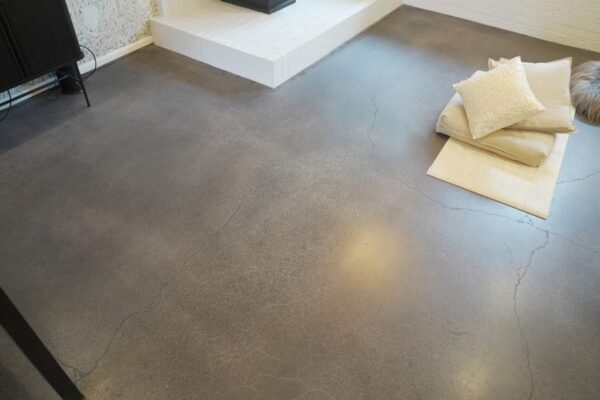A well-maintained industrial flooring UK is crucial for safety, efficiency, and longevity. Given the constant movement of heavy machinery, foot traffic, and potential spills, regular maintenance is key to ensuring that the floor remains in top condition. In this blog post, we’ll share practical warehouse flooring maintenance tips to help you keep your space safe and productive.
1. Establish a Regular Cleaning Routine
Sweeping and Dust Mopping: Daily sweeping or dust mopping removes dust, debris, and small particles that can cause wear on the floor surface. Microfibre mops are particularly effective as they trap dust without scratching.
Wet Cleaning: Depending on your warehouse activity level, schedule wet cleaning on a weekly or bi-weekly basis. Use pH-neutral cleaners that are safe for the type of flooring you have to avoid damage. Always check compatibility with the floor material and conduct a patch test before using a new cleaning solution.
2. Inspect for Damage and Wear
Regular inspections help identify potential issues before they become serious:
- Cracks and Chips: Look for cracks, chips, or uneven areas in concrete or epoxy flooring. Early detection allows for quick repairs, preventing further damage.
- Slippery Areas: Check for areas that have become slippery due to spills or wear. Address these areas promptly by reapplying non-slip coatings or adjusting cleaning routines.
- Loose or Worn Tiles: If your warehouse has tiled flooring, inspect grout lines and tiles for damage. Replace or repair as needed to prevent hazards.
3. Preventative Measures
Preventative care can extend the lifespan of your flooring and reduce maintenance costs:
- Protective Coatings: Applying a sealant or protective coating can guard against wear, chemical spills, and stains. Reapply these coatings as recommended by the manufacturer.
- Floor Mats and Runners: Place heavy-duty mats or runners at high-traffic areas such as loading docks and entryways. These absorb impact and reduce wear on the floor.
- Spill Management: Clean spills immediately to prevent stains and degradation of the floor material. Keep absorbent materials readily available for quick response.
4. Use Proper Equipment
Using the right cleaning equipment makes maintenance more effective:
- Industrial Sweepers and Scrubbers: These machines are designed for large spaces and can handle heavy-duty cleaning tasks more efficiently than manual methods.
- High-Quality Mops and Tools: Invest in good-quality microfibre mops, squeegees, and scrub brushes that are durable and effective at picking up debris and grime.
- Safety Gear: Ensure that maintenance staff use appropriate safety gear such as gloves, goggles, and non-slip footwear to avoid accidents during cleaning and repairs.
5. Schedule Professional Inspections and Maintenance
While regular maintenance by your team is important, professional inspections can catch issues that might be overlooked:
- Annual Audits: Schedule an annual audit with flooring experts to assess the overall condition of your warehouse floor and recommend long-term care strategies.
- Deep Cleaning and Restoration: Plan periodic deep cleaning sessions. Professionals can perform tasks like stripping and resealing surfaces, epoxy floor renewals, or concrete resurfacing to rejuvenate worn floors.
6. Safety and Compliance
Maintaining warehouse flooring is not just about aesthetics but also safety and compliance:
- Non-Slip Treatments: Regularly apply non-slip treatments, especially in areas prone to moisture or spills. This reduces the risk of falls and injuries.
- Compliance with Regulations: Ensure that your maintenance practices comply with workplace safety standards and regulations. Regular documentation of inspections and maintenance routines can be useful during audits or inspections.
Conclusion
Effective warehouse flooring maintenance involves a combination of regular cleaning, proactive inspections, preventative measures, and the use of proper equipment. By implementing these tips, you’ll ensure a safer, more efficient environment, extending the life of your flooring while reducing long-term costs. Consistent care not only improves the longevity of your floor but also contributes to overall workplace safety and productivity.







